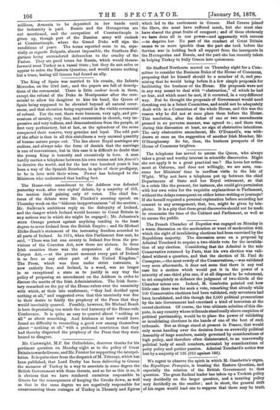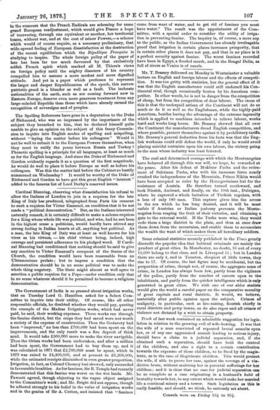We regret to observe the spirit in which M. Gambetta's
organ, the Republique Francaise, is treating the Eastern Question, and especially the relation of the British Government to that question. The great Radical leader has taken up a Turkish policy very decidedly on the larger question, and a taunting policy very decidedly on the smaller ; and in short, the general drift of his organ would lead one to suppose that there may be truth blithe rumours that the French Radicals are scheming for some grand European readjustment, which would give France a hope of • "tecovering, through one equivalent or another, her territorial bows, without war, and at the cost of minor Powers,—a scheme whieh would of courae. require, as a necessary preliminary, that wide-spread feeling of European dissatisfaction at the destruction of the recent equilibrium which the Republique Francaise is Studying to inspire. The whole foreign policy of the paper of late has been far too much flavoured by that exclusively -selfish French spirit which marked all M. Thiers's views on foreign policy until the mighty disasters of his country -compelled him to assume a more modest and more dignified attitude. And yet in a paper which professes to represent the larger and deeper Republicanism of the epoch, this narrow patriotic greed is a blunder as well as a fault. The inchoate nationalities of the earth, such as are coming forward now in Eastern Europe, deserve even more generous treatment from any large-minded Republic than those which have already earned the recognition of sovereigns and of peoples.



































 Previous page
Previous page